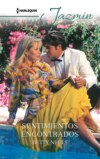Читать книгу: «Not Once But Twice»
“You don’t know a thing about it!”
Christina spoke in anger and disappointment, but Duert answered her smoothly.
“Oh, but I do. I was standing at my window yesterday when you saw Adam leaving with that woman.” He added with curious intentness, “And why should you be so sure he doesn’t love you just because he was taking out a girl he has known for years?”
Christina smiled sadly. “He told me he was going back on duty. He lied.” She said, suddenly fierce, “Oh, why can’t you just leave me alone? How could you possibly understand? You don’t know what it is to love someone!”
He gave her a quick look from under half-shut lids. “I’m sorry you think that,” he said, “but I won’t say any more about it now.” His words seemed loaded with meaning Christina couldn’t understand….
Romance readers around the world were sad to note the passing of Betty Neels in June 2001. Her career spanned thirty years, and she continued to write into her ninetieth year. To her millions of fans, Betty epitomized the romance writer, and yet she began writing almost by accident. She had retired from nursing, but her inquiring mind still sought stimulation. Her new career was born when she heard a lady in her local library bemoaning the lack of good romance novels. Betty’s first book, Sister Peters in Amsterdam, was published in 1969, and she eventually completed 134 books. Her novels offer a reassuring warmth that was very much a part of her own personality. She was a wonderful writer, and she will be greatly missed. Her spirit and genuine talent will live on in all her stories.
Not Once but Twice
Betty Neels

MILLS & BOON
Before you start reading, why not sign up?
Thank you for downloading this Mills & Boon book. If you want to hear about exclusive discounts, special offers and competitions, sign up to our email newsletter today!
Or simply visit
Mills & Boon emails are completely free to receive and you can unsubscribe at any time via the link in any email we send you.
CONTENTS
CHAPTER ONE
CHAPTER TWO
CHAPTER THREE
CHAPTER FOUR
CHAPTER FIVE
CHAPTER SIX
CHAPTER SEVEN
CHAPTER EIGHT
CHAPTER NINE
CHAPTER ONE
IT HAD BEEN raining heavily from a leaden sky, so that the late September afternoon was already settling into an early dusk. People were hurrying home from work, their faces for the most part ill-tempered, for the morning had been fine and umbrellas had seemed unnecessary. The bus queues were long, impatient to get home; surging to and fro to avoid the fine sprays of dirty water thrown up by the traffic. The girl who joined the queue outside St Athud’s Hospital sighed gently; if she hadn’t been so late off duty, she would have missed the evening rush hour and been home by now; as it was the shops were already shut and she would have to change her plans for the evening meal. She frowned a little, debating the advantages of sausages over macaroni cheese. Sausages were quick of course…a sharp prod in her back reminded her that the queue was moving, but there were so many people ahead of her she had little chance of getting on the bus. Indeed, she was at the steps when the conductor came rattling down the stairs, bellowing ‘Full up!’ and rang the bell. At the same time he saw her and swung her on board just as the bus pulled out.
‘Cor, Sister, almost left yer be’ind,’ he declared cheerfully. ‘Yer should ’ave shouted…’
She smiled at him and shook her head. ‘That was nice of you, Mr Collins. How’s the chest?’
He handed out a few tickets before he answered her and she listened gravely, her fine grey eyes on his cheerful face. They were quite beautiful eyes, heavily fringed with curling dark lashes, redeeming an ordinary face from plainness, for her mouth, though sweetly curved, was too wide and her nose tiptilted, and her light brown hair was drawn back too severely from her face, although the damp air had allowed one or two curling tendrils to escape. But the conductor could see no fault in her. When he had been stricken with asthma, unable to breathe and scared to death, it had been she who had been ready with the ephedrine when the wheezing started, and if it grew worse, the aminophyline injections, and she who had calmed him down, assured him that he wasn’t going to die, restored his cheerful Cockney humour. He thought of her as an angel and good looks didn’t come into it.
He went on down the bus presently, leaving her standing crushed against the door with an over-large woman flattening her on the other side, a circumstance so common to her that she hardly noticed. She was a serene young woman with plenty of common sense and while not quite content with her lot, prepared to accept it—indeed, she had reminded herself on several occasions, she hadn’t much choice. She was twenty-seven, and while not exactly unkissed, certainly unwed and as far as she could see, likely to remain so.
Her journey was a short one. She got off at a busy junction and turned into a road of mid-Victorian houses, their uniformity broken here and there by a shop and occasionally by a small block of modern flats. It was a depressing road, still respectable and reasonably quiet, but she had never quite got used to it. At the end of the second terrace of houses there was a crossroads and she turned into the left-hand road, to stop a few doors down before a house which was rather better maintained than its neighbours and whose door bore a brass plate with ‘Doctor G. H. Forbes’ engraved upon it. It was still ajar, for although evening surgery was over the receptionist would be tidying up and getting things ready for the morning. The bleak little lobby opened on to a narrow hall carpeted in a useful brown and brightly lighted, showing a door on either side, shut, and one at the end, half open. She shut the door behind her and her brother’s voice called: ‘Christina, I’m in the study.’
She went to the half-open door and into the room beyond, a small room, its walls lined with books, two elderly chairs by the empty fireplace, and a desk in one corner. Her brother was sitting behind it, a serious-looking man in his thirties, bearing the good looks which had passed his sister by. He smiled at her as she came in and she saw then that there was someone with him; a young man sitting easily in one of the chairs. He got up as she stood looking at him and smiled at her, and she, usually so calm and sensible, felt her heart lurch and thunder against her ribs. Here was the man, she told herself wildly, the one she’d been waiting for, tall and slim, with the kind of good looks one imagined and never saw… His eyes were the bluest she had ever seen and his hair, very dark, curled elegantly over his collar. She became aware that her mouth was a little open, so she closed it with a rush and smiled back at them both, once more her sensible self.
‘I’m late,’ she offered, ‘sorry about that,’ and waited to be introduced.
‘This is Adam ter Brandt, he’s over here to do a short course of anaesthetics—we met in Brussels last year at that seminar.’ And as she held out a hand: ‘Adam, this is Christina, my sister—she’s Medical Ward Sister at St Athud’s, and she housekeeps for me.’ As he spoke Christina noticed a strange expression cross his face and wondered what it was. She must remember to find out later; George Henry was worried about something and she wondered what, but only for a second. Their visitor was speaking, asking her questions about her work in fluent accented English, looking at her with an obvious admiration which quite threatened to take her breath.
Presently she said: ‘How about coffee? It won’t take a minute.’ At the door she asked: ‘Supper, too, if you care to stay? Nothing exciting—macaroni cheese—the shops were shut.’
The coffee was accepted but supper declined on the grounds of a prior engagement. And if I’d been offered macaroni cheese, I’d have had a prior engagement too, thought Christina, getting coffee in the kitchen behind the stairs, and she fell to wondering about their visitor. He looked a lot younger than George Henry; probably younger than herself. She paused in measuring out the coffee to take a quick look in the small mirror over the wall cupboard. She looked every day of her twenty-seven years, in no time at all she’d have wrinkles and grey hairs. There wasn’t time to have a good look now, but she would when she went to bed—there was that wildly expensive cream one of the older Sisters had been talking about, guaranteed to hold back the advancing years… But at least she was slim, although she could have wished to have been a little taller.
She made the coffee and carried it back to the study where she sat down and poured it out with a serenity she was far from feeling.
Adam ter Brandt went shortly afterwards, and because George Henry plainly had work to do at his desk, Christina collected up the coffee cups and went into the kitchen to get their supper. The receptionist had gone by now and the house was quiet as she started her cooking. With it safely in the oven she went upstairs to her room, tidied herself and then sat down before the dressing table again, to take down her hair once more and pin it in a different style so that the little curls had a chance to show themselves and she looked—she hoped—younger. She told her reflection that she was being silly as she did it, but all the same she left it like that and went on sitting, suddenly faintly discontented. The room, she decided, glancing round her, was nice enough, but it wasn’t pretty. When she had first come to live with George Henry, he had already furnished the house and in the three years she had been with him she hadn’t liked to change anything; it was his, and although she was his sister, she had no right to alter his home.
She had been glad at the time to join forces with him. Their mother had died so very soon after their father, leaving Christina lonely in the small Somerset cottage. She had been nursing in the nearby town then, going home very often, not bothering overmuch about the future, but left on her own there had been no point in staying there—besides, she had discovered that the house and most of the small amount of money which had been left had gone to George Henry. It had shocked her when he had told her that he was going to sell it, although she could quite see the sense in that; a young GP, just setting up on his own, needed money behind him. She had never let him see how much she had minded leaving the country, but had fallen in with his idea of getting a job in London and sharing his house. She had found a good job, too; going to and fro hadn’t been all that difficult, there was a splendid little woman who came in to clean three times a week and she supposed that in time, if she really tried, she would get to like London; the London they lived in—in a road like thousands of other roads, where no one knew anyone else and all the houses looked alike. The birds couldn’t be heard above the traffic and there wasn’t much sky to be seen.
She had gone back to Somerset several times to stay with friends, not trusting herself to look at her old home, hating to come back, but she had said nothing to George Henry. He was content with his work, determined to get on and buy another practice in a better part of London, but only when he was ready for it. He was a good doctor and worked hard and he was a kind brother. At least she had someone.
She went downstairs and took a look at the macaroni cheese, then went into the dining room to lay the table. It was a small rather gloomy room and furnished in the modern style which Christina didn’t really care for; she liked old pieces, not necessarily matching each other, and bits and pieces of china and silver lying around. Of course, she reminded herself loyally, that would never do for George Henry, for Mrs Tate wouldn’t have the time to dust them. The sitting room led out of the dining room and always reminded her forcibly of a show window in a furniture shop; modern again and quite uncluttered. She wandered in and out of it again, not quite knowing why, her head regrettably full of Adam ter Brandt. It seemed a great pity that having actually met a man to stir her well-balanced heart, she should be forced to lose sight of him immediately.
She laid the table in a careless fashion and, reminded of supper by a strong whiff of cheese, went to the kitchen again.
George Henry wasn’t working when she went to call him to his meal, just sitting staring in front of him, but when she asked if there was something the matter, he assured her that there wasn’t, ate a hearty supper while he regaled her with his day’s work, and then excused himself with the plea that he still had some notes to write up. ‘So I’ll say goodnight, Christina,’ he finished as he hurried from the room—almost, she thought, as though he were avoiding her.
They met at breakfast, but only briefly—it was far too early in the morning to talk. She had to leave the house at a quarter to eight, and he had his surgery at half past eight. Christina cleared the table with speed, left the dishes piled up for Mrs Tate and left the house. It was a splendid autumn morning. She looked at the drab road and thought of the glowing trees and the wisps of smoke from bonfires and the hedges full of sloes and the cottage she still missed so abominably. In a few years, perhaps, when George Henry was well and truly established, they would buy a little house and spend their weekends there. He showed no signs of wanting to marry; she had asked him that so often and he had laughed and told her that he wasn’t the marrying kind and weren’t they perfectly content to stay as they were? And until now she had been. She quickened her pace towards the bus stop, telling herself sharply that it was ridiculous to allow a brief meeting with someone to unsettle her well ordered life.
Once at the hospital there was little chance of daydreaming. The changing room, a small dark room hidden away under the stairs which led up to the Medical Wards, was already occupied by Beryl Frith, the Women’s Medical Ward Sister, and two part-time staff nurses who worked for her. They all exchanged brief good mornings and got on with the difficult business of putting on caps and getting into uniforms in as small a space as possible. Christina, sliding out of a jersey dress and into a navy blue cotton one, listened with half an ear to the other girls’ gossip, while she mentally reviewed the day ahead of her. Nurse Trent had a day off, and one of the student nurses had a lecture at ten o’clock and it was Dr Robinson’s round; they’d have to scuttle round to be ready by eleven o’clock… Her thoughts were interrupted by Beryl, who had been talking to her and hadn’t got an answer.
‘What I said was,’ she repeated patiently, ‘Freddy took me to that new restaurant in Greek Street last night—heavenly food, though I’m not sure what I was eating not that it mattered,’ she went on dreamily, ‘with Freddy there. You ought to try it some time, Chrissy.’
‘It sounds great,’ Christina agreed cheerfully. ‘I must find someone to take me.’ She bent to see into the tiny mirror and arrange her cap, and Beryl gave her a quick look. Chrissy was such a dear, always so calm and self-possessed and good-tempered a touch too matter-of-fact, though. And so capable and practical. Men liked a girl to be a bit helpless about things like unblocking sinks and changing electrical plugs and not knowing which bus to catch, but Chrissy could do all those things without fuss, taking them for granted in the nicest, most unassuming way, which probably was why the few men of her acquaintance, while liking her, tended to ask her advice and then go out with some feather-witted blonde.
Christina made her way upstairs to the top floor of the medical wing, exactly on time as she always was. During her training she had suffered long waits to go off duty in the morning because the Ward Sister had been late, and she had vowed then that if ever she became a Ward Sister she would make a point of arriving on the dot.
The two night nurses were waiting for her now, pale and heavy-eyed from eleven hours of duty. Christina bade them good morning, sat down composedly at her desk and listened to the night report without interruption. At the end of it she made one or two necessary comments, made a note or two and sent them off duty before her day staff nurse, Carole Pring, put her head round the door and was bidden to come in. Carole did so, bearing two mugs of tea and shutting the door neatly behind her with a foot.
‘That new man, Sister,’ she began at once, ‘his BP’s too low. Would you take a look presently? And young Tate is complaining about his head again.’
Christina cast her eyes over the report once more. ‘Ah yes—the night staff mention it too. I’ll get Dr Fisher to have a look before Dr Robinson comes—he can take a look at Mr Truscott too. We’ll alter his observations to half-hourly, don’t you think?’ She took a sip of tea. ‘They’re getting the patients ready for X-ray? Good, and there’s Mr Soames’s barium swallow at half past nine. You take Nurse Bates with you until she goes to lecture; the other two can make beds and get people up, that leaves Mrs Toms to take patients down to the departments.’ She swallowed the rest of her tea while she sorted the post on her desk. ‘I’ll do my round.’ She smiled at the girl opposite her, her grey eyes twinkling. ‘Oh, and you’d better take Mr Soames down, Carole—Ken’s on duty this morning.’
Carole blushed and giggled. She was twenty-one and pretty and she and the assistant radiographer spent all their free time together. ‘I say, thanks awfully, Sister!’ She added happily: ‘He’s taking me to see Private Lives this evening.’
Christina watched her go: that was twice in less than half an hour—first Beryl with her Freddy, and now Carole with Ken. She didn’t know that she sighed as she got up and went into the ward.
It was a long ward of twenty-eight beds, not yet modernised, so that the beds faced each other in rows against the walls. There were two side rooms too where the very ill were nursed or occasionally a private patient, although they had a wing of their own in the centre block.
Christina went into the first of these now, to greet the old man sitting up in bed, glasses askew on his beak of a nose, reading The Times. He looked up as she went in and without saying good morning began a forceful summing up of what the government should do immediately. Christina listened quietly, her intelligent face very calm while she looked him over. He had been in hospital for more than a week with cardiac asthma and wasn’t improving. It was a pity that he had no family to bother about him; his wife had died years ago and his two sons were both abroad and not in the least interested. She had tried once to get him transferred to the Private Wing, but he had objected so strongly that she had given it up; she supposed she would have him for a very long time, giving extra work to her nurses, wanting things they hadn’t got, demanding attention while he read out long articles from The Times when there were a thousand and one jobs waiting to be done…
‘I expect you’re right,’ she commented. ‘These people can be so exasperating, can’t they? Here are several letters for you, I daresay they’ll make pleasanter reading.’ She added: ‘How do you feel today?’
‘Not bad—couldn’t sleep, though.’
She nodded. ‘I’ll get your pills changed. You shall have a good night tonight, Colonel.’ She smiled and slipped from the room and into the next one. The young man with the headache was there. She saw that he looked ill and strained and when she spoke to him he answered drowsily. Not so good, she decided; the sooner Dr Fisher saw him the better. His pulse was too slow and although he hadn’t been vomiting since his admission less than two days ago, she was prepared to bet her month’s money on a cerebral tumour. He was due for X-ray that morning, but he wasn’t fit to move. He’d been admitted for observation and it had been decided to give him a day’s bed rest before starting on a number of tests, and although she had suggested an X-ray when he was admitted, Dr Fisher, who knew everything, had told her importantly that rest was far more important. Well, he had better think again, she thought as she whipped back into the office and asked the lodge to get him urgently.
He was inclined to be ill-tempered when he turned up ten minutes later. He had been up several times during the night and after a far too brief nap was about to sit down to a hearty breakfast, and instead of that here he was facing a calm-eyed young woman, telling him without heat to do something quickly. ‘And I do mean quickly,’ said Christina, not losing one ounce of her habitual serenity. ‘Dr Robinson will be here at eleven o’clock and if he finds Mr Tate like this heaven knows what he’ll do to you.’ She urged him towards the bed, saying softly: ‘It’s just my guess, but do you suppose it could be a cerebral tumour?’
John Fisher didn’t much like Christina. He respected her judgment, admired her cool which she never seemed to lose, and agreed with everyone else that she was a thoroughly splendid nurse as well as a loyal friend; perhaps it was because of these that he adopted a cocksure attitude towards her and why he said now: ‘I’ve thought that all along. Get him to X-Ray at once, will you, and let me have his notes.’
She did both, forbearing to mention that beyond the bare fact of Mr Tate’s admission there was precious little else written up. When she came back presently from seeing the patient safely to X-Ray, it was to find that Dr Fisher had filled a page with meticulous observations and added a query cerebral tumour at the end.
She finished her round after that before getting down to the task of having the ward ready for Dr Robinson, who had a fiend’s temper concealed behind his urbane appearance. But the round went off very well. Dr Robinson had most of the beds and behaved rather as though he had all of them, making a kind of royal progress down the ward. But nothing could fault his manner towards his patients; he was pleasant, reassuring and listened patiently while they talked. Some of them rambled on at length, telling him things they had told him on the previous round, but he never said so. Christina rather liked him; his temper didn’t worry her very much and since he had discovered that she wasn’t in the least afraid of him, he seldom vented it upon her, and if he sometimes flew into a rage with one of her nurses, then she stood up for her with a cool determination which he had found difficult to dispose of. On the whole, the two of them got on very well. He was on the point of leaving the ward when he turned suddenly and addressed her. ‘I suppose it was you who diagnosed Mr Tate for us, Sister?’
Her grey eyes were very clear. ‘Dr Fisher was concerned about him,’ she told him quietly. ‘He told me when he came to examine him early this morning that he had suspected a cerebral tumour, sir.’
Dr Robinson nodded, swivelling his eyes behind their glasses to look at Dr Fisher, as red as a turkey-cock.
‘That’s what I thought you’d say. Well, he’s got a chance now he’s transferred to the surgical side. Thanks to you,’ he added sotto voce.
The day was uneventful after that. Christina went down to her dinner presently, sharing a table with several of her friends, talking shop interlarded with clothes, boy-friends and holidays. Everyone seemed to be going abroad. She looked round her quite nonplussed when someone asked her where she was going for her winter leave.
She said slowly: ‘Well, I don’t know—I hadn’t given it a thought. I expect George Henry will want to stay at home, and I might go down to Somerset. It’s nice at this time of year, though I’ve no holidays until the beginning of October.’
She thought about it once or twice during the afternoon. It would be fun to go away, abroad, perhaps, even Scotland or Wales. Perhaps she could persuade George Henry to come with her, she was sure he hadn’t made any plans.
She couldn’t have been more mistaken. They had had their supper and for once he had followed her into their small sitting room instead of going to his study and it seemed an opportunity to bring the matter up, but before she could start he said with unusual brusqueness: ‘Chrissy, I want to talk to you… I’ve been meaning to tell you for a week or two, but somehow…I’m going to get married.’
He paused to look at her and was reassured to see that she was looking at him with a serene face. The light was dim, so he couldn’t see how pale she had gone.
‘You know her—Hilary Woods. We’ve had an understanding for some time now and last week we decided to marry as soon as possible. There’s no point in waiting—she’ll give up her job, of course, and live here.’
Christina had the extraordinary feeling that she was having a dream. The room didn’t seem quite real, nor did George Henry, talking away so earnestly about getting married—and to Hilary Woods, a social worker with a puffed-up sense of her own importance. She knew, without her brother saying a word, that she would have to leave before Hilary put a foot over the doorstep. She said in her calm way: ‘George Henry, how super for you! I’m so glad—Hilary will make you a splendid wife and she’ll be so understanding.’
George Henry eyed her carefully. ‘Then you don’t mind? I’ve been worried—you know, wondering if you’d mind—I mean, finding somewhere else to live. Hilary said you’d be able to get a room at St Athud’s without any trouble at all. I daresay you’d like it better— you’d be independent and have a great deal more time for your own amusement.’
Briefly, she wondered what she would do with all the extra time. Perhaps it would be better if she could find a bedsitter or a tiny flat, but there would be lonely meals to eat and no one to talk to. She wasn’t going to feel sorry for herself but facts would have to be faced.
‘Well, of course I can—the Sisters’ rooms are pretty good, you know, and I can take up tennis again and I’ve always wanted to join the Social Club.’ She uttered the thumping lie without blinking and saw George Henry relax. ‘When are you thinking of getting married?’ she asked.
‘Well, actually, in a month’s time. We’ve already been about the licence. It’s to be a quiet affair—just a few friends and Hilary’s parents. You’ll come, of course, Chrissy.’
‘I wouldn’t miss it for the world! I’ll go and see someone about getting a room. Hilary will want to make some changes here, I expect, and it’ll be much easier if I’m not here.’
‘We don’t want to turn you out.’
‘You’re not, my dear, and I’m delighted for you both—when you see Hilary tell her that, won’t you? I wouldn’t like her to be worried on my account.’ Christina got up and went to look out of the window into the dull street beyond, suddenly filled with the crazy desire to leave it all; go somewhere far away, start again in another job, perhaps meet someone who would want to marry her—someone like Adam ter Brandt.
She went the next day to ask about living in. There was a room free, she was told, and she went to look at it. It was nicely furnished in an impersonal way with a view over the streets around the hospital, but the idea of living there, probably for years, appalled her. It was sheer good luck that at dinner time Linda Soames, one of the Accident Room Sisters, announced that she was leaving in a month’s time and did anyone want to take over her bedsitter. ‘It’s five minutes’ quick walk from here,’ she observed, ‘and on the top floor. The street’s fairly quiet and there’s a kind of kitchen in a cupboard and you share the bathroom.’
When Christina said that she was interested, the entire table turned to stare at her.
‘But you live with your brother,’ exclaimed Beryl. ‘Has he sold the practice, then?’
‘No, he’s getting married.’
‘But, Chrissy…’ someone started, and then stopped as she went on:
‘I’m so glad, I was beginning to think that he was a confirmed bachelor.’
There was a little silence until someone else said: ‘Who’s the lucky girl?’
‘Hilary Woods—she’s a social worker.’ She added: ‘Ideal for a doctor’s wife.’
She told herself that several times during the next day or two. Hilary came to dinner and Christina didn’t allow herself to be annoyed at any of the remarks that young lady made. It was obvious that George Henry was very much in love and if he was happy that was more important than anything else. She listened with composure while Hilary made suggestions about her future, giving advice where none was sought, and to give her her due, unaware that she was being unspeakably bossy. Christina replied suitably to all the sensible suggestions put to her and offered no information, nor did she show her annoyance when Hilary criticised the way in which the beef had been cooked, the arrangement of the furniture in the sitting-room and the cheerful clutter of ornaments scattered round it. The latter Christina intended to remove when she left; most of them were hers, anyway, treasures from a happy childhood and bits and pieces which had belonged to her mother. As to the tables and chairs, Hilary was welcome to do what she liked with them, and that went for the beef too. She endured another half an hour of patronage while they washed up and then went thankfully to her room, on the plea that she had a long day before her.
Carole had gone off sick the evening before and the only way to get round that was to do an eight-till-eight herself; there was no one available to take over from her if she went off duty, and she didn’t really mind. All the same, she was tired when she got home just before nine o’clock to find a note from George Henry saying that he had taken Hilary out to dinner. Christina went into the kitchen and looked in the fridge. She couldn’t face the beef, not after Hilary’s expert criticism. An egg, she supposed, and some toast. The front door bell rang as she was getting out the bread and she went to answer it—if it was a patient they would have to telephone Dr Howes who shared emergency calls with George Henry, after eight o’clock.
Бесплатный фрагмент закончился.
Начислим
+13
Покупайте книги и получайте бонусы в Литрес, Читай-городе и Буквоеде.
Участвовать в бонусной программе



























